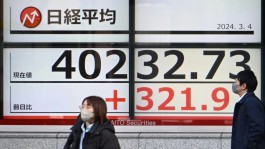Special report
Team setup
Today, data is the most valuable source in the world, and has become the main driver of the economy in light of the fluctuations in the oil market, as data stimulates growth and paves the way for fairer and more efficient societies. < / p> In health care, for example, data is used to predict epidemics, prevent diseases, and improve treatments, and governments benefit from data during the implementation of core projects, through Knowing where to build new schools or construct bus lines, for example. In fact, all sectors and areas of society, from climate to artificial intelligence, will be positively affected by improving access to data, creating a new economic opportunity. p> The European Commission notes that the data economy in the European Union alone amounted to 300 billion euros in 2016 and is expected to double by 2020 to 739 billion euros. < / p> Globally, the data economy will generate at least $ 13 billion in new global economic activity by 2030, creating new economic forces affecting the financial system. The global as a whole. While China and the United States appear to be the two leading powers in the field of artificial intelligence, data sources cannot be concentrated in a specific place, so we will find new and unexpected players regarding Artificial intelligence applications. It is possible that the new world order taking shape is likely to be more complex than bipolar structure (China and America), especially as data is being produced at an accelerated pace. > Accordingly, we find countries like Poland, Mexico, the Czech Republic, New Zealand, Argentina and Chile among the list of the strongest countries in the data economy around the world, regardless of their lack of superiority in the traditional economy, so the countries are ranked. It is based on the size and average data production and consumption, the number of active users on the Internet, and the ease of access to data.
Difficulty trading data
If the value of the data is clear and its potential is enormous, then why hasn't the data revolution yet? Why are we still waiting for data-driven innovations and societal transformations that transform market rules?
The reason is that most of the data comes in a non-structured format, and therefore there is difficulty in converting it to structured data, and incompatible data models are adopted during the organizing process by the owners Data, and how data has been priced and exchanged efficiently has not been reached yet. In other words, there are no standards or platforms for making data exchange as smooth as the stock market, and as a result, trading data is often boring, expensive, ineffective, and cumbersome. ..





































